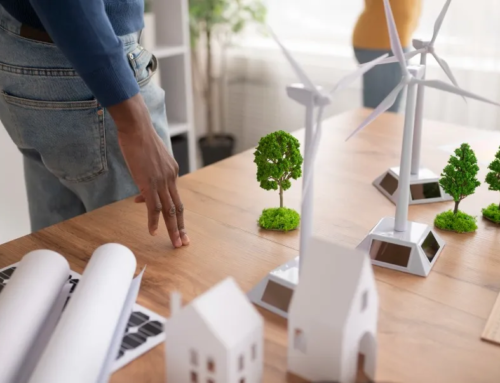The Pros and Cons of Fossil Fuels
With all the talk about global warming today, some people want to instantly quit using fossil fuels. But there are some advantages of fossil fuels, including their:
- Wide availability
- Reliability
- Efficiency
- Transportability
- And many others
At the same time, fossil fuels will run out eventually, and they can contribute to pollution today. Let’s explore the pros and cons of fossil fuels so we can make well-informed decisions about our future.
Types of Fossil Fuels
- Coal: Coal is primarily composed of carbon and is the most abundant fossil fuel.
- Crude Oil (Petroleum): Crude oil is a liquid fossil fuel that forms from the remains of marine microorganisms. It is refined into different products, including gasoline, diesel fuel, jet fuel, and various chemicals.
- Natural Gas: Natural gas is a gaseous fossil fuel primarily composed of methane (CH4). It can be found in underground rock formations and is often associated with oil deposits.
Pros of Fossil Fuel Use
1. Our Deep Knowledge of the Technology
We have worked with fossil fuels for decades and understand how to work with them responsibly. As examples, we have built better safety protocols into mining them and improved the cleanliness of power plants.
2. Reliability
Fossil fuels are reliable. In our current infrastructure, alternative sources of power are not widespread enough to supply all our energy needs as reliably as fossil fuels, which means fossil fuels must be the foundation of our power grid until alternative energy catches up.
3. Efficiency
Natural processes have concentrated energy into fossil fuels in a way that makes it very efficient. Burning a relatively small amount of fossil fuel releases a surprising amount of energy, which we use to create electricity, run machines, heat buildings, and more.
4. The Ease of Installing Power Plants
Alternative energy sources require natural features like rivers, oceans, abundant sunlight, or steady wind. Fossil fuel power plants, though, can be easily set up in almost any location, even remote ones.
5. The Ease of Moving Fossil Fuels
Coal, natural gas, and oil are easy to move almost anywhere in the world with trucks and pipes. In contrast, alternative energy sources (such as wind) often can’t be transported in themselves.
6. Abundance of Fossil Fuel Sources
We find coal and natural gas in many places in the world. Most countries can extract some type of fossil fuel within their borders. In contrast, alternative fuels, such as those made from biomass, require abundant farmland to make, which not all countries have (and that’s a “con” in an assessment of biomass energy pros and cons).
7. Current Wide Availability
Many countries have used fossil fuels for decades, which means that mines, equipment, and reserves are currently easy to find. This gives countries at different levels of affluence access to this energy source, along with low-cost technologies for working with it.
8. Job Creation
Many workers around the world receive their livelihoods from jobs related to fossil fuels. Without those jobs, they would have trouble feeding their families. It will take time and effort to create more jobs in the alternative energy sector.
9. Production of Related Products
As we refine petroleum, we turn it into a variety of useful byproducts, including gasoline, diesel, and plastics. Some of those are used to make soap, nylon, clothing, feedstock, and other products that our civilization relies on.
Cons of Fossil Fuel Use
1. Depleting Resources
Sources of fossil fuels won’t last forever, and natural processes take an impractically long time to create more. That’s why shouldn’t rely only on fossil fuels. We need more experience with alternatives, such as biomass fuels. (If we discuss biomass pros and cons, one pro is that we can create more biomass fuels ourselves in our own lifetimes.)
2. Accidents Affecting Workers and Communities
As with anything powerful, fossil fuels must be used responsibly. Companies using them should uphold high standards of safety for their own workers and for the community around them in order to avoid accidents such as oil spills.
3. Government Incentives Support Fossil Fuels
Governments have incentivized the extraction and use of fossil fuels in order to lower their perceived cost, but that may stop. To plan for the future, we should build our expertise in alternative energy sources until it matches or exceeds what we’ve developed with fossil fuels.
4. Pollution
When we burn fossil fuels, we release carbon dioxide, methane, other gases, and particles into the air. These have been linked to human-caused global warming and air pollution that may lead to health problems, such as asthma.
Use Cases of Fossil Fuels
Fossil fuels have historically been a major source of energy for various applications. While they have several use cases, it’s important to note that their widespread use has environmental and sustainability concerns due to the release of greenhouse gases when burned. Here are some common use cases of fossil fuels:
Electricity Generation: Fossil fuels, particularly coal, natural gas, and oil, have been traditionally used to generate electricity in power plants. These power plants burn fossil fuels to produce steam, which drives turbines to generate electrical power.
Transportation: Gasoline and diesel, which are derived from crude oil, power most internal combustion engines in cars, trucks, ships, and airplanes.
Heating and Cooling: Natural gas and oil are commonly used for heating and cooling in residential, commercial, and industrial buildings.
Cooking and Appliances: Natural gas is often used in stoves, ovens, water heaters, and other household appliances for cooking and heating water.
We need more education both about fossil fuels and the pros and cons of using them. We also need more consumers to switch to companies that contribute to alternative energy. Help create a sustainable energy future by contacting Kiwi Energy today.






